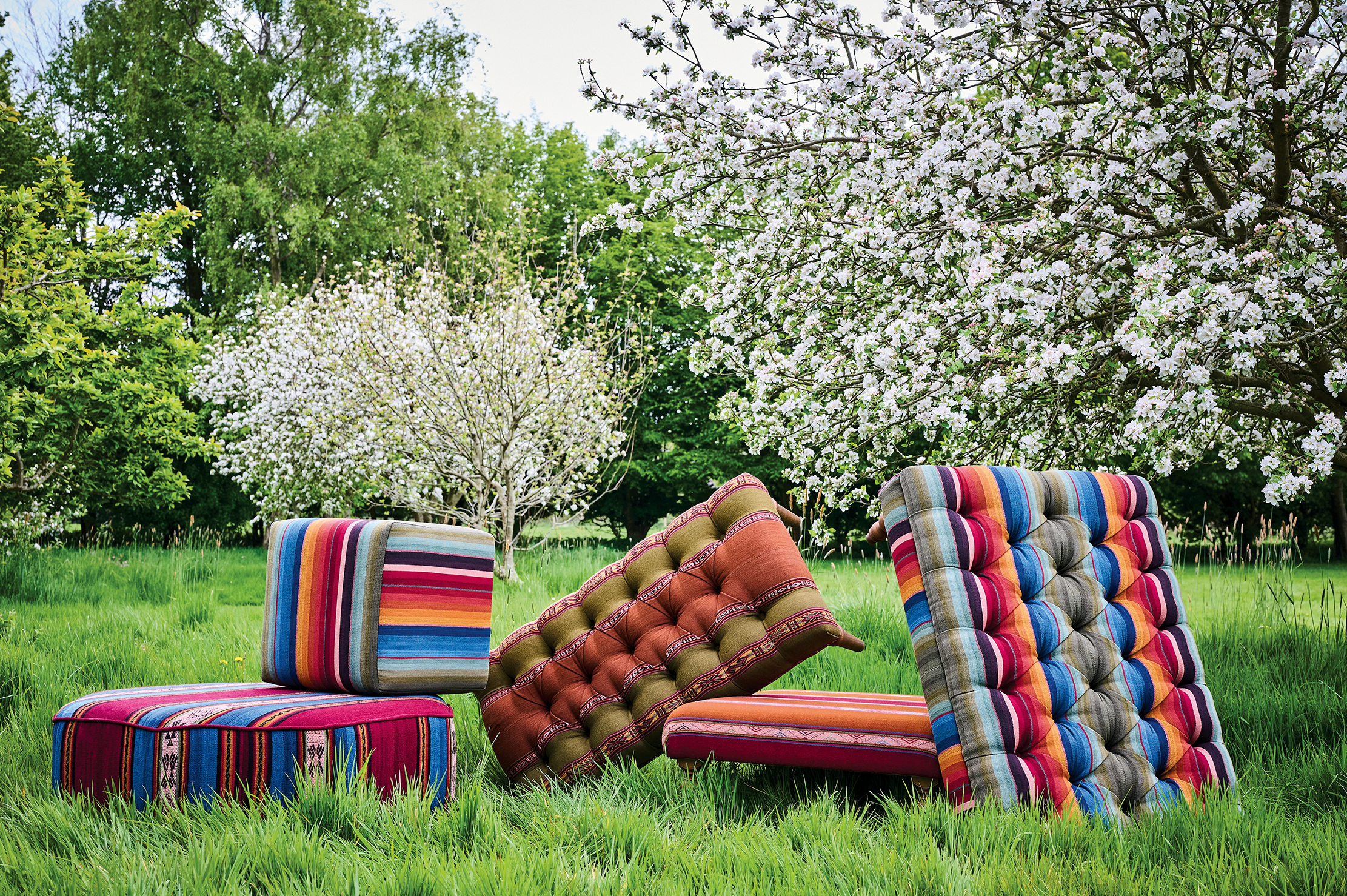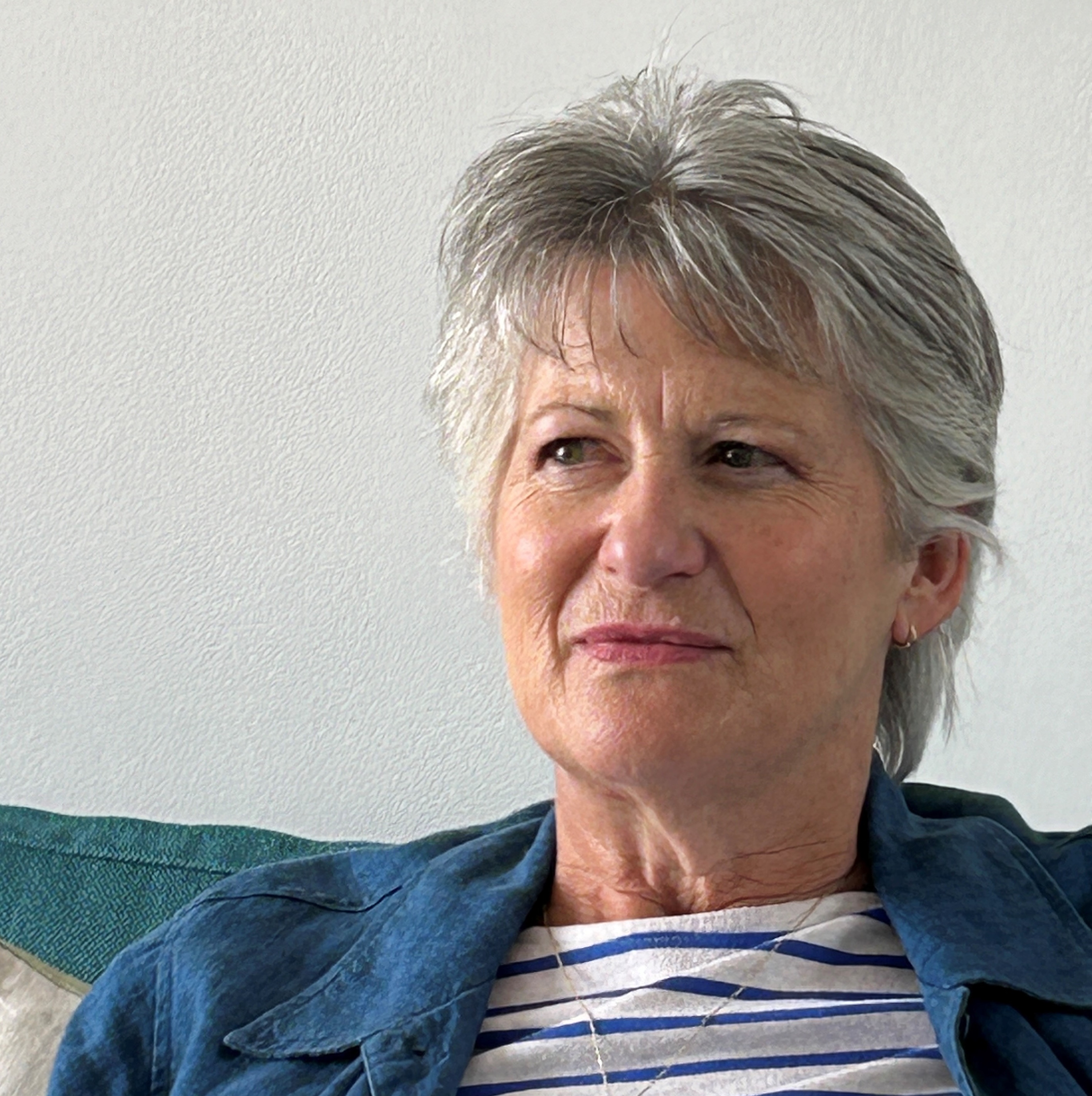The Peruvian connection brightening up British textiles
British textile businesses are collaborating with far-flung artisanal communities, finds Amelia Thorpe.


As did so many business owners, Andrew Cussins, founder of Sofas & Stuff, had a challenge on his hands. ‘Cast your mind back to the beginning of the first lockdown,’ he says. ‘As a furniture retailer with lots of bricks-and-mortar shops that were shut, I was absolutely panicking.’
After a miserable morning spent attempting to negotiate reductions in rent with the landlords of his stores, he found himself facing more gloomy hours ahead. ‘I sat there thinking there’s got to be something better I can do with this afternoon than argue with landlords,’ he recalls. Picking up a copy of the textile magazine Selvedge, he began flicking through its pages. ‘As I looked at the pictures of artisanal fabrics and weavers from around the planet, it hit me that we could be doing something positive — a special collection of upholstery fabrics to showcase their wonderful skills.’
After discussions with Selvedge editor Polly Leonard, Sofas & Stuff began working on a collection of vibrantly patterned cloth produced by seven weaving communities in Peru’s Cusco region, high in the Andes, each with its own distinctive traditions, techniques and colour combinations. Produced as a collaboration with the Centro de Textiles Tradicionales del Cusco, the hand-dyed cloth is made with alpaca and sheep wool, woven on backstrap and horizontal looms in a labour-intensive process: it takes about eight days’ work to produce one metre of cloth.
‘During lockdown, the weavers, used to producing cloth for the tourism industry in Peru that was now completely closed down, had no work, literally no work at all,’ explains Mr Cussins. There can be little doubt that the order for 720 metres of cloth, woven by 200 artisans over six months, came at a crucial time.
The textiles arrived in the UK in spring 2022 to be made into the Peruvian Collection — a limited edition of some 60 bespoke chairs and footstools. ‘Commercially, it is not a huge venture for us, but, emotionally and creatively, it says something about what we care about,’ says Mr Cussins. In 2024, he is planning a furniture collection upholstered in cloth from Uzbekistan. ‘It’s really important to showcase what these incredible artisans around the world can do,’ he adds.
Somebody else who believes in the power of artisanal skill — and our collective social responsibility — is Adam Gilchrist, founder of bespoke handmade-rug specialist Veedon Fleece. ‘When I set up the company 28 years ago, I had to work out a way to break the very much ingrained tradition of child labour in Nepal,’ he says.
His determination to end the practice meant that he had to pay the weavers what their children might have otherwise earned at the loom and their school fees. ‘In the first four years, I lost most of the antiques from my house,’ he recalls. But, eventually, his investment paid off as word began to spread and Veedon Fleece has not looked back. Today, the firm continues to support local Nepali charities and to contribute to ethical weaving stances.
Exquisite houses, the beauty of Nature, and how to get the most from your life, straight to your inbox.
Felicity Marshall is the founder of ethical homeware brand Daughters of Gaea, which she launched in the spring of 2022. ‘Transparent ethical values are quite rare in high-end design,’ she observes. Her goal is to offer a range of fully traceable handcrafted products — currently including cushions and quilts produced in collaboration with Tharangini Studios, a woman-owned block-print workshop in Bangalore. According to non-profit Nest, which supports responsible growth of the artisan community, hand workers (usually female) contribute more than $718 billion to our global GDP, but social-economic protection is not their norm. ‘I saw this as a massive opportunity,’ she says, ‘to not only preserve cultural traditions, but also to improve the wellbeing of some of these women workers through fair-trade employment.’
Amelia Thorpe is a design and interiors journalist and regular contributor to Country Life. She spent the first half of her career book publishing, before jumping the fence to become a writer — a role that she adores. Amelia lives in London with her husband and two roguish dogs.
